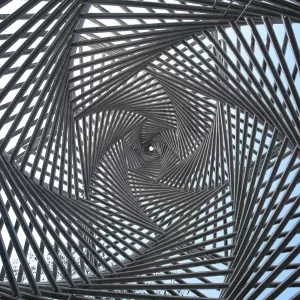What is Inguinal Hernia?
[trp_language language=”en_US”]
An inguinal hernia occurs when the intestine pokes through a hole in the abdominal wall in the groin area. Inguinal hernias are relatively common. This condition mostly affects older men. The most common symptom of an inguinal hernia is a lump in the groin area, which may go away temporarily when pushed on. The diagnosis is made by a doctor examining the lump and examining the lump with an ultrasound scan of the area. As untreated hernias can sometimes cause bowel to become trapped and die, the hole in the abdominal wall is often repaired surgically. A trapped hernia is an emergency and needs urgent treatment. Surgical treatment usually works well to cure this condition.
Risks
A hernia occurs when a an organ, most commonly intestine, moves into a part of the body where it doesn’t normally belong. An inguinal hernia occurs when the intestine pokes through a hole in the abdominal wall in the groin region. This hole can occur during development before birth, or can develop over time due to age, injury or muscle weakness. Things that increase the pressure inside the abdomen can increase the risk of this condition, such as being obese, having a persistent cough, straining when opening the bowel or heavy lifting. Inguinal hernias are common. This condition is much more common among men, and tends to affect older people.
Symptoms
Typical symptoms include a bulge in the groin area or scrotum. This lump may be uncomfortable or painful, especially when exercising. It may be possible to reduce the bulge by pushing on it, but it will eventually come back.
Diagnosis
The diagnosis is usually made via the physical examination. Ultrasound of the area helps to confirm diagnosis.
Treatment
Treatment involves repairing the hole in the abdominal wall at surgery. One option involves placing a mesh over in the groin area to cover and support the hole which causes the hernia. This is usually done laparoscopically (with keyhole surgery).
Prevention
Avoiding activities that cause increased pressure in the abdomen, such as straining when opening the bowel or lifting heavy loads, can help to prevent an inguinal hernia, or prevent an existing hernia from getting bigger.
Other names for inguinal hernia
- Groin hernia
- Hernia inguinalis
[/trp_language]
[trp_language language=”ar”][wp_show_posts id=””][/trp_language]
[trp_language language=”fr_FR”][wp_show_posts id=””][/trp_language]
**What is Inguinal Hernia?**
An inguinal hernia occurs when tissue, usually part of the intestine, protrudes through a weakened area in the abdominal wall near the groin [[1]]. It is commonly seen in men, with the condition affecting approximately 25% of males throughout their lifetime [[1]].
**Causes of Inguinal Hernia:**
There are several potential causes of an inguinal hernia, including:
– **Congenital defects:** Some individuals are born with a natural weakness in their abdominal wall [[2]].
– **Increased abdominal pressure:** Conditions that increase pressure within the abdomen, such as heavy lifting, obesity, or chronic coughing, can contribute to the development of a hernia [[2]].
– **Muscle weakness:** As we age, our abdominal muscles naturally weaken, which can increase the risk of a hernia [[2]].
**Symptoms of Inguinal Hernia:**
The most common symptom of an inguinal hernia is a bulge or lump in the groin area [[3]]. Other potential symptoms include:
– Pain or discomfort in the groin, especially during physical exertion
– Burning or aching sensation
– Constipation or urinary difficulties
– Nausea and vomiting in severe cases
**Treatment for Inguinal Hernia:**
The primary treatment for an inguinal hernia is surgery [[3]]. Surgery involves repairing the weakened area in the abdominal wall and returning the protruding tissue to its proper position. Depending on the severity of the hernia, laparoscopic or open surgical procedures may be used.
**Conclusion:**
Inguinal hernia is a common condition that can affect individuals of all ages, but it is most prevalent in males. If you experience any symptoms of an inguinal hernia, it is important to seek medical attention promptly to prevent potential complications. Surgery is the primary treatment option, and it is generally successful in resolving the condition [[3]].
2 Comments
Leave a Reply
Popular Articles





Inguinal Hernia
66:Assista